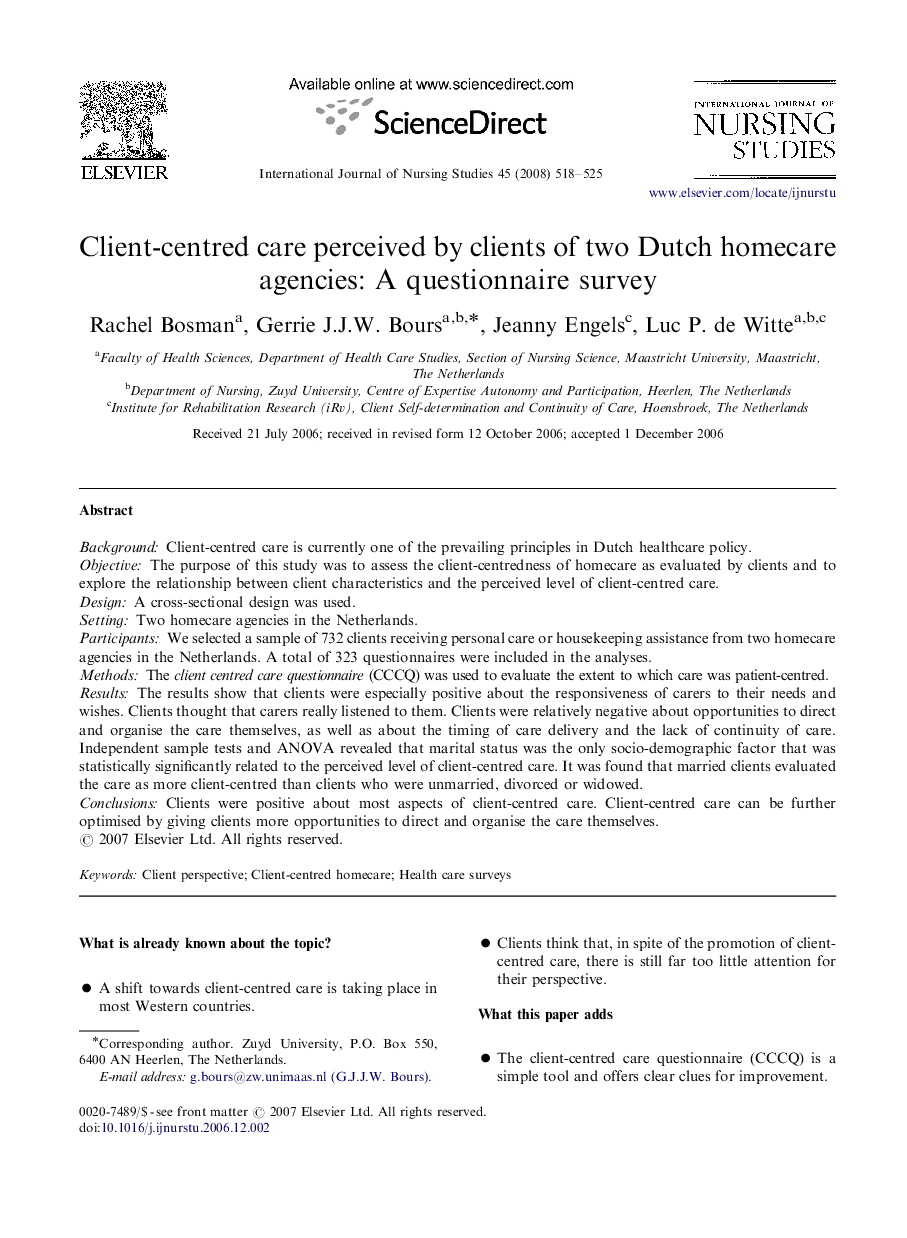| Article ID | Journal | Published Year | Pages | File Type |
|---|---|---|---|---|
| 1076817 | International Journal of Nursing Studies | 2008 | 8 Pages |
BackgroundClient-centred care is currently one of the prevailing principles in Dutch healthcare policy.ObjectiveThe purpose of this study was to assess the client-centredness of homecare as evaluated by clients and to explore the relationship between client characteristics and the perceived level of client-centred care.DesignA cross-sectional design was used.SettingTwo homecare agencies in the Netherlands.ParticipantsWe selected a sample of 732 clients receiving personal care or housekeeping assistance from two homecare agencies in the Netherlands. A total of 323 questionnaires were included in the analyses.MethodsThe client centred care questionnaire (CCCQ) was used to evaluate the extent to which care was patient-centred.ResultsThe results show that clients were especially positive about the responsiveness of carers to their needs and wishes. Clients thought that carers really listened to them. Clients were relatively negative about opportunities to direct and organise the care themselves, as well as about the timing of care delivery and the lack of continuity of care. Independent sample tests and ANOVA revealed that marital status was the only socio-demographic factor that was statistically significantly related to the perceived level of client-centred care. It was found that married clients evaluated the care as more client-centred than clients who were unmarried, divorced or widowed.ConclusionsClients were positive about most aspects of client-centred care. Client-centred care can be further optimised by giving clients more opportunities to direct and organise the care themselves.
